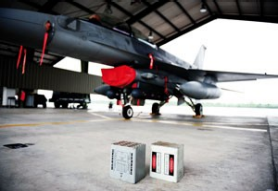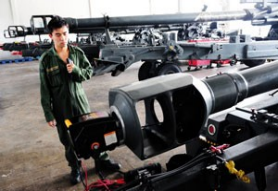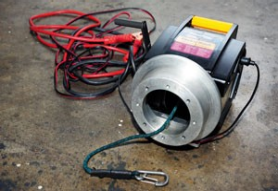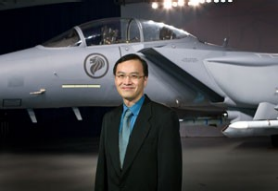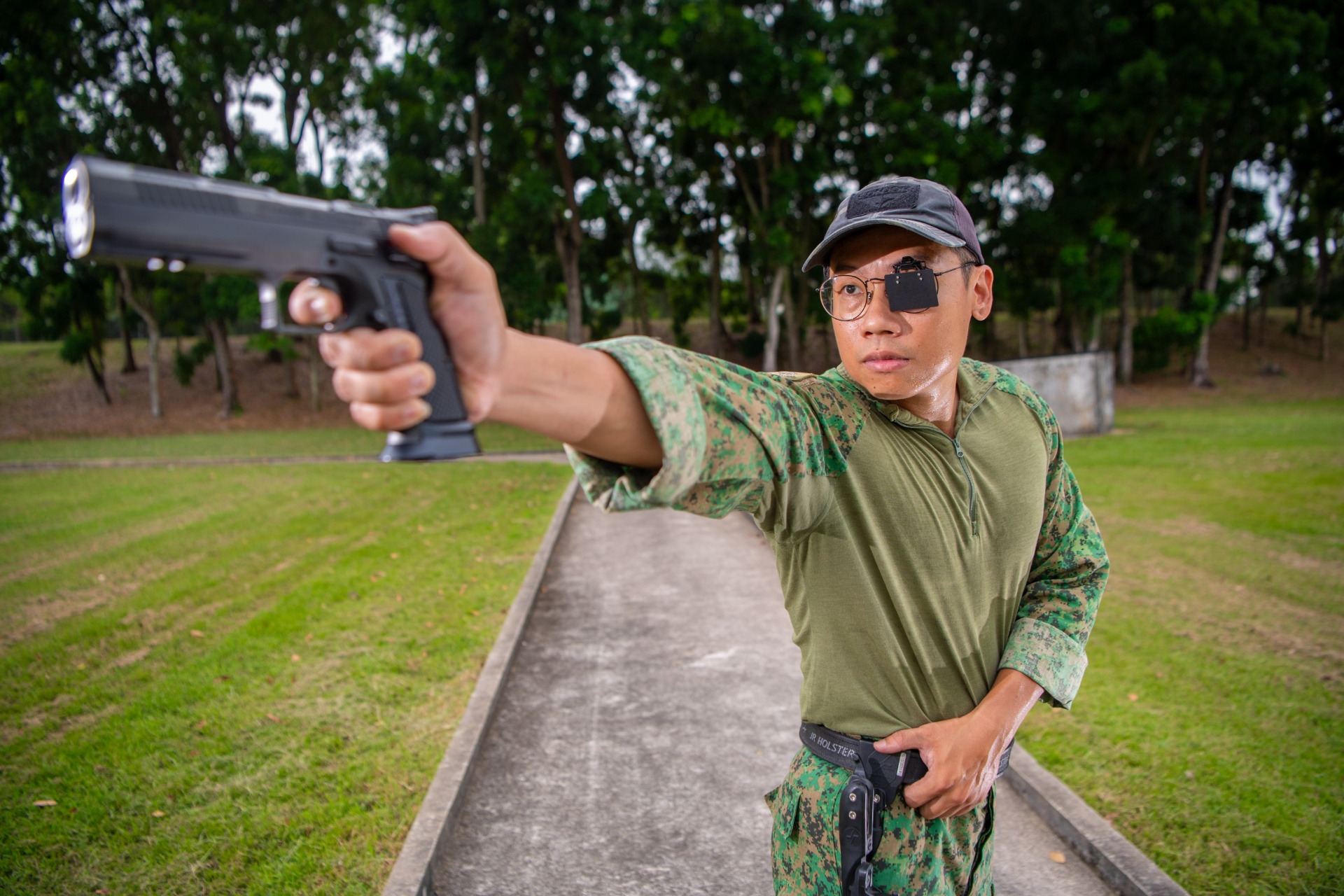TECHNOLOGY
FOR A MORE EFFICIENT SAF
04 Jan 2009
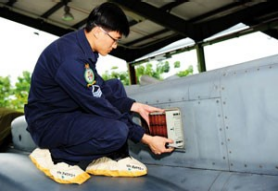
In the face of today's dynamic and uncertain security environment, it has become more important than ever for the Singapore Armed Forces (SAF) to continually seek new methods to achieve greater proficiency and productivity.
Find out what enables some award-winning innovators in 2008 to translate their ideas into reality as PIONEER looks at how they optimised available resources to add value and bolster the SAF's capabilities.
Inventor Thomas Edison once said that genius is 1 percent inspiration, 99 percent perspiration. The members of Twisted Mind, a Work Improvement Team (WIT) from the Republic of Singapore Air Force (RSAF), make no ambitious claims to genius, but this famous line certainly seems apt in describing their path to success.
Faced with a shortage of spare Chaff/Flare magazines for the F-16D Block 52+ Fighting Falcons, the 11 servicemen from the Aircraft Specialist Maintenance Squadron, Air Logistics Group - Fixed Wing 2, came together to think of a solution.
Chaffs/Flares are used to deceive hostile radar systems and enemy heat-seeking missiles.
According to the Twisted Mind team, there was no "eureka" moment when inspiration suddenly struck. Instead, it was simply the natural conclusion derived after weeks of in-depth research on the Chaff/Flare Dispensing System (CFDS).
As team member Second Sergeant Lionel Wee put it: "To even think of the idea in the first place, we had to understand how the identification system works."
Learning that there was a surplus of magazines left over from the retired A4-SU Super Skyhawk system, the team seized the opportunity to find out if they could be recycled. The flare magazine was found to be compatible with the F-16D Block 52+ through technical studies, however, the chaff magazine had to be modified to be used on the fighter.
Innovation is hard work
A simple solution was eventually discovered: drilling a hole in the retainer plates of the A4 magazines such that the CFDS of the F-16D Block 52+ is "tricked" into detecting and accepting these modified magazines.
Not only did this innovative idea save $2.72 million by utilising existing resources for reuse and avoiding the cost of buying new magazines, the generation of more spare magazines also means personnel from the Aircraft & Weapons Operation Flight and Weapon Load Crew no longer have to rush to remove, reload and reinstall magazines during operations.
This has greatly expedited the aircraft's turnaround time, boosting the RSAF's overall level of operational readiness.
The team went on to be the first Ministry of Defence (MINDEF) team to win the Star award the highest honour at last year's National Innovation and Quality Circles Convention.
To maximise the project's potential, this idea was shared with the F-15SG team and identified for further development for the new fighter.
Attributing the support from colleagues and management as a key factor in the team's achievement, team member Staff Sergeant Yong Heng Meng shared that a strong sense of belonging was what spurred them on to give their best.
"The RSAF is like our second home. We always look for ways to identify possible improvements and create a better, safer environment so that everybody can enjoy their work," he said.
Stay positive and persevere
Another crucial component in bringing budding ideas to fruition is perseverance. Exemplifying this spirit of tenacity and self-motivation is the Morwits WIT from 6th Army Maintenance Base (6 AMB).
Their portable Automated Gun-barrel Cleaning Kit was commended at Innovation-In-Action Seminar 2008 as a significant macro-level innovation that could be implemented across several units.
Team member First Sergeant (1SG) Desmond Tay revealed that in the past, four men were needed to manually pull a cumbersome five-piece rod in order to clean artillery gun barrels.
"It's a very long and tiring process "requires a lot of working space because of the length of the rod," he explained. "There's also the issue of safety because the rods are heavy and quite slippery."
With the kit, the cleaning process can now be done with just one man and the time required has been cut from 45 to 15 minutes.
Brainstorming and situational analysis during a MINDEF Innovation and Transformation Office workshop ignited the team's creative spark and thus the idea of using an automatic winch pulley was born. The group from 6 AMB then went on to create a working prototype with financial aid from the Innovate@MINDEF Fund, a fund used to assist teams in coming up with new projects.
Head Maintenance Operations Section from 6 AMB, Mr Choo Cheow Heng, added: "Often, people keep their ideas to themselves or give up because of negative feedback. To me, it's a second chance for us to be aware of potential problems, and bounce back to improve upon our product even more."
Even after completing the working model which was targeted at users of 155mm artillery guns, the group continued to test their product and expand it SAF-wide.
This has driven them to create a multi-adapter that allows the kit to be applied to the cleaning of guns in the Armour formation, such as the Leopard 2A4 Main Battle Tanks, as well as ship guns from the Navy.
Never-ending drive to excel
In addition to fostering a culture of excellence and innovation among its personnel, MINDEF also places great emphasis on growing a local team of defence scientists and engineers who use human ingenuity and high-end technology as leverage to give the SAF a competitive edge.
Among them is Defence Technology Prize 2008 Individual (Engineering) award recipient, Mr Pang Chung Khiang. With 25 years of service in the Defence Science & Technology Agency (DSTA), Mr Pang is no stranger to innovation.
An instrumental figure in spearheading local flight-testing and aircraft stores certification capability in the RSAF, he undertook the complex task of introducing innovations to advanced aircraft and pushing boundaries to adopt new capabilities most suited to the unique needs of the Air Force.
As a DSTA Systems Architect, he has helped to develop the engineering masterplan for the RSAF's Networked Air Defence system, which links weapons, sensors and command and control systems.
In his concurrent role as Director (Air Systems), he oversees the management and acquisition of new air platforms such as the F-15SG.
According to Mr Pang, the local community of talented engineers and scientists is well geared to take on future challenges, but he also emphasised the value of technological tie-ups and using investments made by foreign counterparts as leverage.
"This is so that we can get the best from both the international market, as well as tap on our in-country research and development agencies to build systems that can handle different scenarios resulting from the challenges of the defence and security landscape," he explained.
Mr Pang is also responsible for extending the service life of RSAF weapon systems and equipment with improved capabilities to ensure that they remain operationally relevant. "We always try to explore opportunities for innovation and cost-effective ways of delivering the best capabilities to our Air Force," he said.
"It's not just about looking at the best of what the market currently has to offer, but assessing its potential to incorporate future technological advances, and adapting them for the SAF's specific mission requirements."
The continual drive to excel and improve is what provides the SAF with a strong foundation to safeguard Singapores peace and stability.
With the men and women of the defence community always striving to effect quality changes, the SAF is ready and capable of pushing ahead on its 3rd Generation transformation journey.
ALSO READ IN TECHNOLOGY
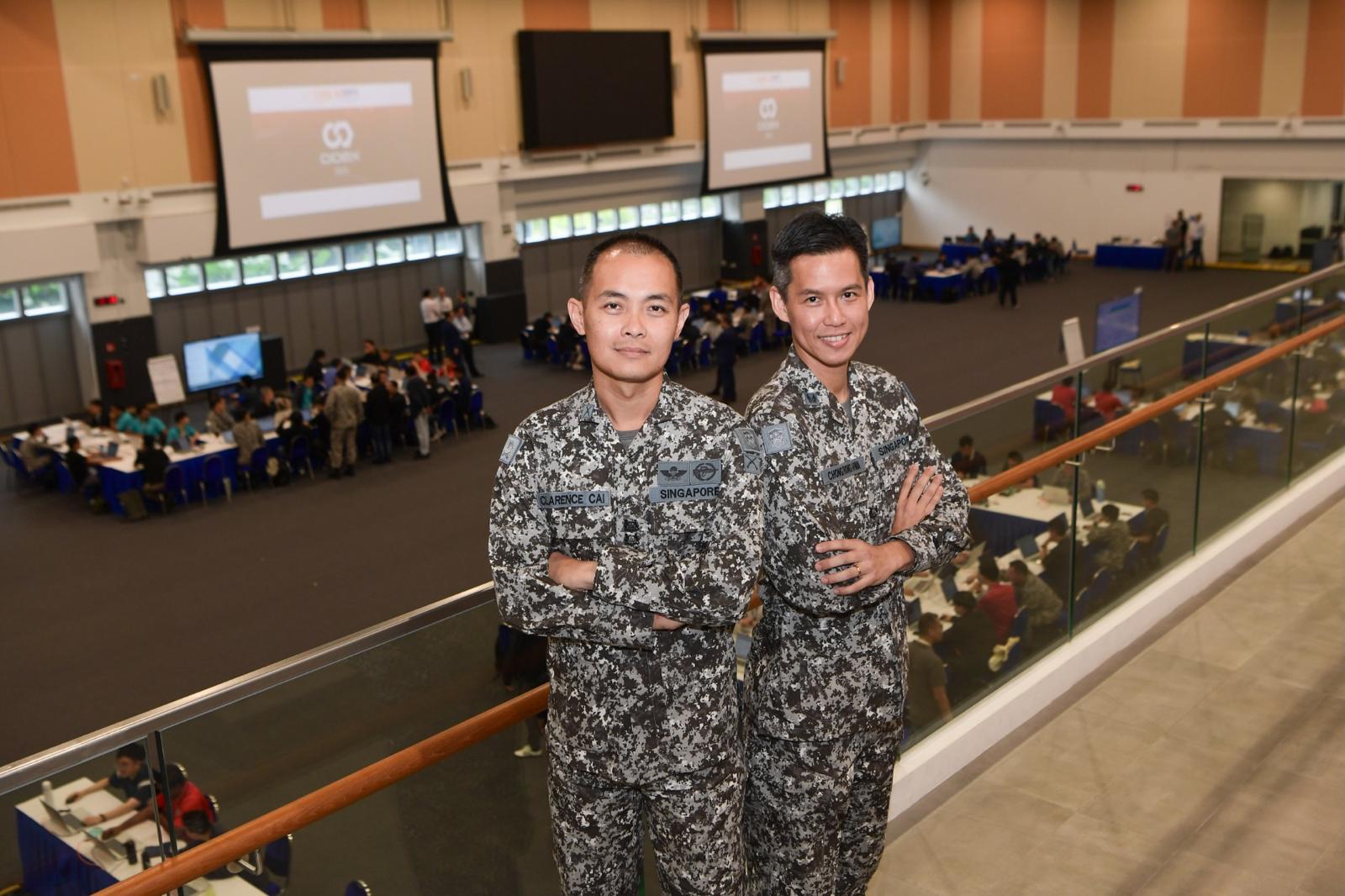
AI joins the fight in national cyber defence exercise
12 Nov 2025
AI and closer collaboration among agencies and industry are taking centre stage in this year’s Critical Infrastructure Defence Exercise (CIDeX).
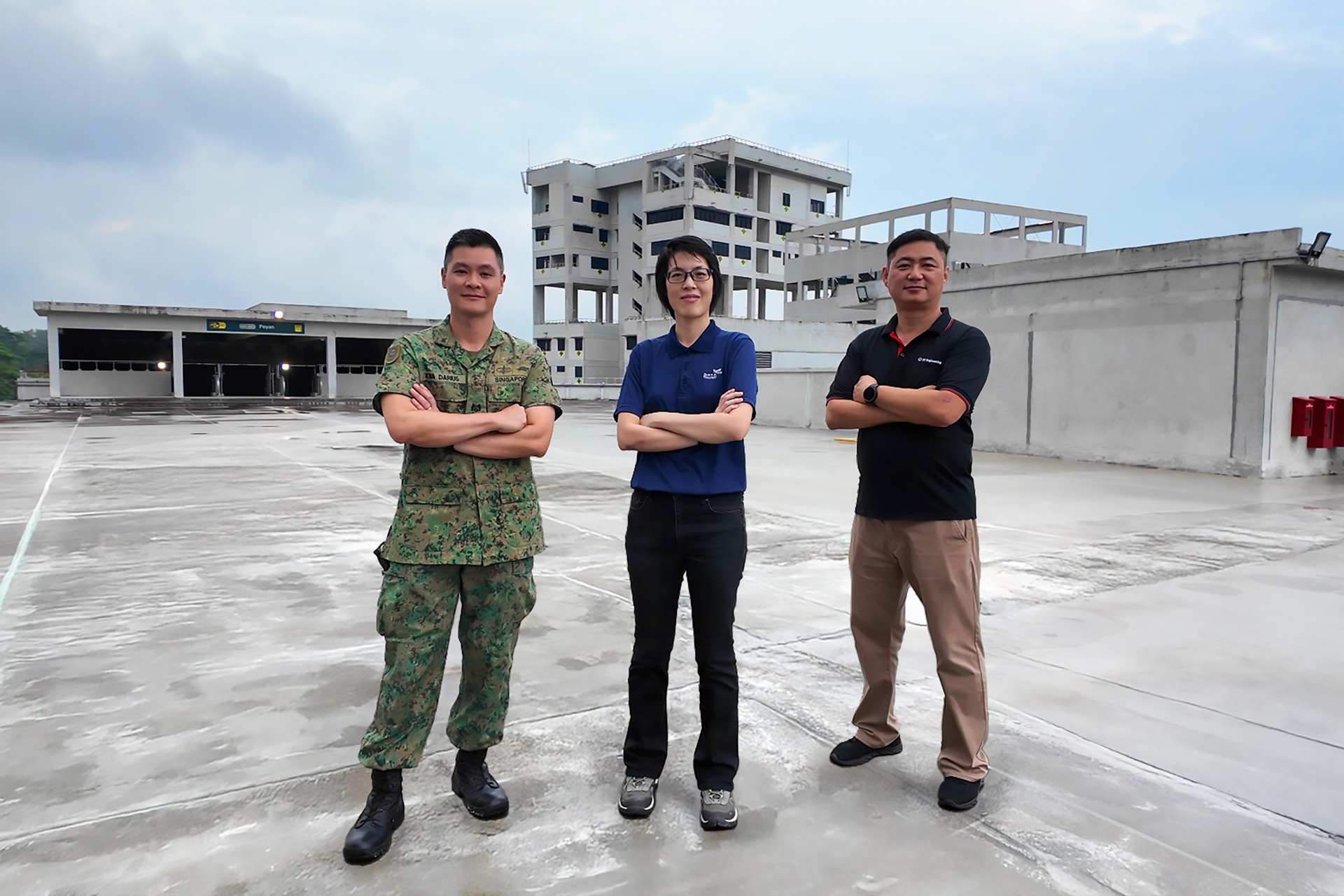
They built this city
01 Oct 2025
Turning vision to reality: the team behind SAFTI City clinches the Defence Technology Prize 2025 Team (Engineering) Award!
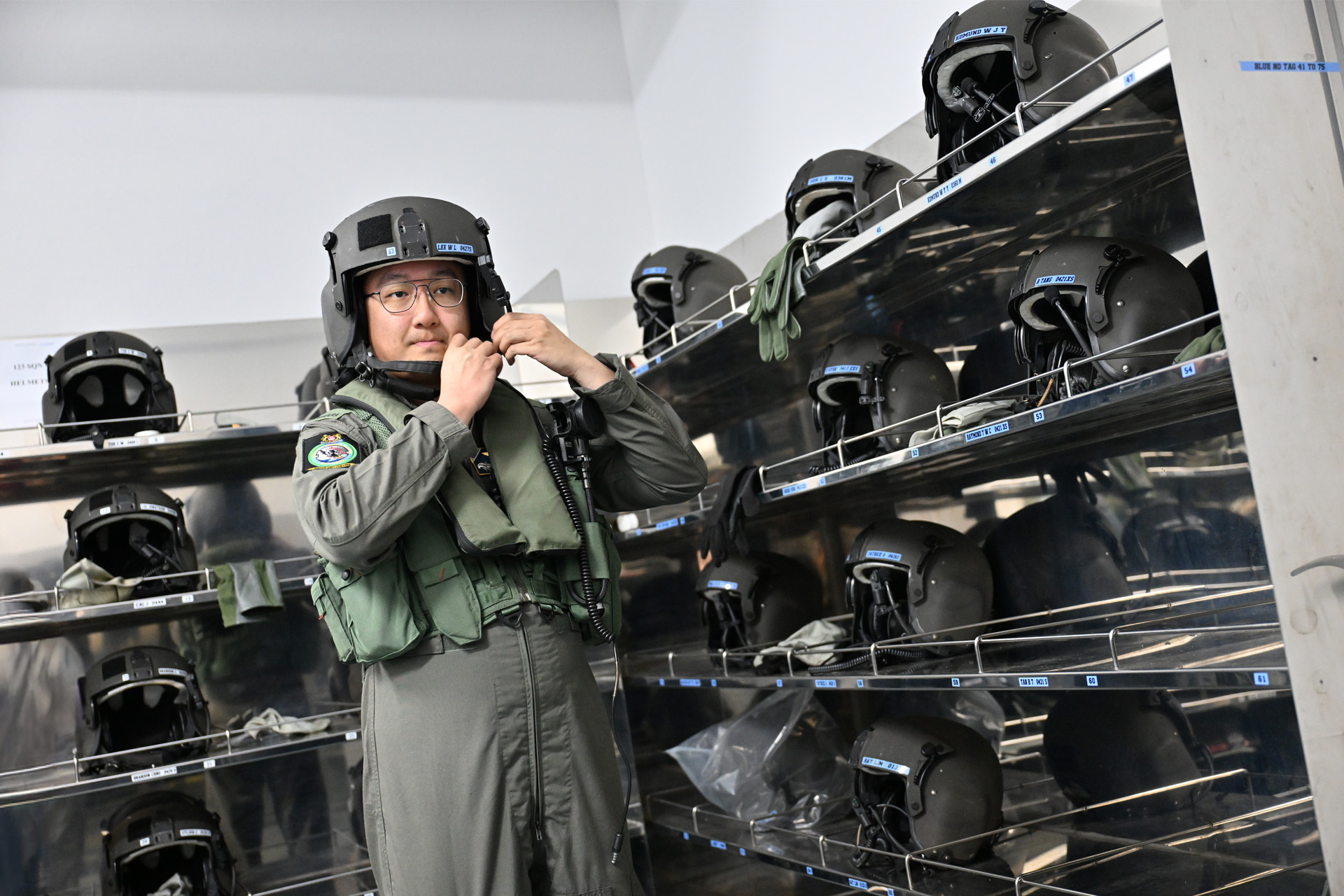
Operating over skies & seas
22 Aug 2025
This gear is designed to help a Sensor Supervisor survive emergencies in the air and at sea.


